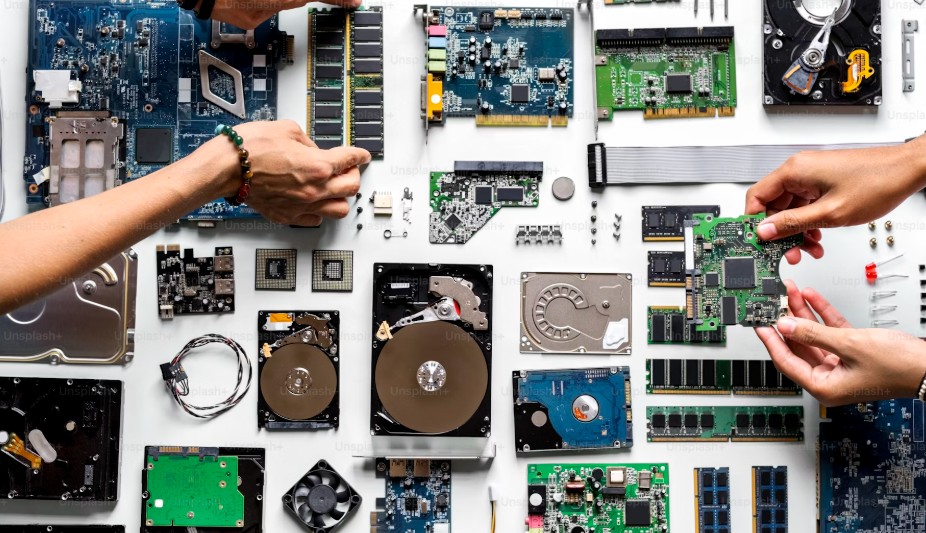Electronic devices hold vast amounts of personal and professional data. Whether selling, donating, or recycling them, ensuring that private information is removed properly is essential. Data breaches and identity theft are real risks when disposing of old devices, and taking the right precautions protects both security and privacy.
Beyond personal data, environmental responsibility is another key factor to consider. Electronics contain materials that, when disposed of incorrectly, can harm ecosystems. Following a structured approach to preparing devices for disposal helps minimize these risks.
- Back-Up Important Data
- Restore the Device to Factory Settings
- Remove or Wipe Storage Drives
- Consider Professional Data Destruction Services
- Choose a Responsible Recycling Method
- Verify Compliance with Data Protection Laws
- Remove Personal Accessories and Linked Accounts
- Check Device Functionality Before Disposing
- Dispose of Batteries Separately
- Sell, Donate, or Trade in the Device
- Perform a Final Inspection
- In Short
Back-Up Important Data
Files, photos, and sensitive documents should be stored elsewhere before letting go of an electronic device. External hard drives and cloud services provide secure ways to keep essential data accessible. Encrypted backups add an extra layer of protection for those who work with confidential files.
Before moving forward, it’s helpful to check that all necessary files have been transferred correctly. Double-checking storage locations prevents losing access to critical information after the device is erased.
Restore the Device to Factory Settings
Wiping a device removes personal data, stored passwords, and other sensitive details. Most operating systems provide built-in options for resetting devices, making it easy to return them to default settings.
Encryption tools can add another layer of security before performing a reset. Some storage systems retain recoverable data even after a reset, so taking extra measures to ensure permanent removal is a good practice.
Remove or Wipe Storage Drives
Deleting files from a hard drive doesn’t guarantee complete removal. Even after formatting, data recovery tools can retrieve lost information. Understanding how to destroy a hard drive effectively ensures that sensitive data is completely removed before disposal.
For those handling business data or highly sensitive files, secure hard drive disposal is a necessity. Removing the hard drive from a device and using professional-grade erasure tools can prevent unauthorized access. Physically damaging the drive is another effective method, though it should be done safely and in accordance with disposal regulations.
Consider Professional Data Destruction Services
Professional services offer thorough solutions for complete data security. Many organizations and individuals choose LA Recycling’s hard drive destruction services, which guarantee data is eliminated beyond recovery. This approach is particularly useful for companies following compliance regulations related to data protection.
Certified services follow industry standards to ensure proper disposal, using methods such as degaussing, shredding, or incineration. These processes leave no chance of data retrieval, making them ideal for those who require absolute security.
Choose a Responsible Recycling Method
Electronics manufacturer and other institutions claim that recycling is essential for reducing environmental harm. Devices contain metals and chemicals that need proper handling to prevent contamination. Many certified programs ensure responsible processing by recovering valuable materials and disposing of hazardous components safely.
Community e-waste collection events, retailer take-back programs, and manufacturer recycling initiatives offer convenient ways to dispose of electronics. Researching available options ensures devices are handled responsibly while minimizing ecological impact.
Verify Compliance with Data Protection Laws
For businesses and professionals handling sensitive information, data protection regulations require proper disposal practices. Improper handling of confidential records can result in serious consequences, including legal liability.
Secure hard drive disposal is a recommended step for companies that store customer or client data. Ensuring compliance with industry regulations provides peace of mind and prevents legal issues related to unauthorized data access.
Remove Personal Accessories and Linked Accounts
Devices often come with accessories that should be removed before disposal. Chargers, cases, and external peripherals may still be useful and can either be reused or donated. Some devices also have linked accounts that should be logged out and disconnected to prevent future users from accessing them.
Cloud storage accounts, social media logins, and app subscriptions should be unlinked before resetting a device. Some manufacturers require account removal as a security measure, preventing unauthorized use by future owners.
Check Device Functionality Before Disposing
Not all electronics need to be discarded immediately. Some devices still hold value and can be resold or repurposed. Running diagnostic tests ensures that all components are working properly before making a decision.
Understanding how to destroy a hard drive safely and efficiently is important before disposing of devices that no longer function. Broken electronics should be handled by professionals who can ensure proper recycling or disposal.
Dispose of Batteries Separately
Rechargeable and lithium-ion batteries require specific disposal methods. These components contain hazardous materials and can pose safety risks if discarded improperly. Many retailers and recycling centers offer battery drop-off programs to handle these items safely.
Before discarding a device, checking whether the battery can be removed and disposed of separately ensures compliance with safety regulations. Some programs also offer battery recycling incentives, making it easier to dispose of them responsibly.
Sell, Donate, or Trade in the Device
If a device is still in good condition, selling or donating it can extend its usability. Many organizations accept used electronics, especially if they are still functional. Trade-in programs offered by manufacturers and retailers provide another alternative, allowing devices to be exchanged for store credit or discounts.
For those considering resale, listing electronics on reputable platforms ensures they reach buyers who will use them responsibly. Taking the time to clear personal data before selling prevents security concerns and ensures a smooth transaction.
Perform a Final Inspection
After completing all necessary steps, a final review ensures nothing has been overlooked. Confirming that backups are accessible, personal data is removed, and accessories are accounted for prevents complications later.
Devices being donated or sold should be cleaned and inspected to confirm they are ready for the next user. For those recycling electronics, ensuring that all sensitive data has been erased, especially by using secure hard drive disposal methods—provides additional peace of mind.
In Short
Properly preparing electronics before disposal is an essential step in protecting data and the environment. Taking the time to remove personal information, use professional services when necessary, and choose responsible recycling options helps prevent security risks.
By following these steps, individuals and businesses can ensure devices are handled safely, data remains protected, and environmental impact is minimized. Secure disposal practices protect personal and professional information, as well as contribute to a more sustainable approach to technology management.



